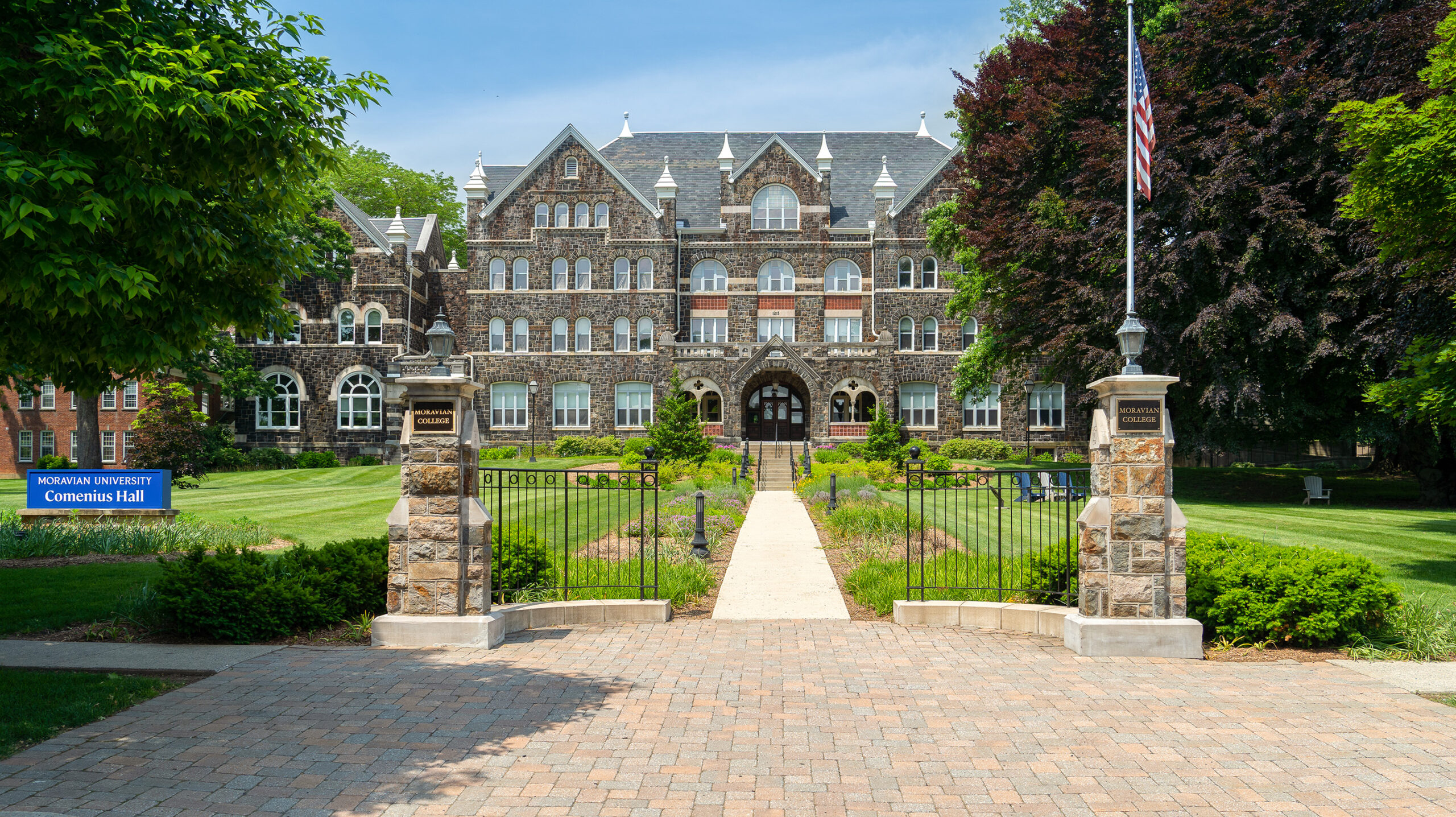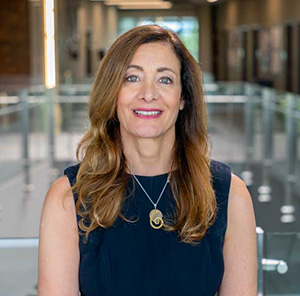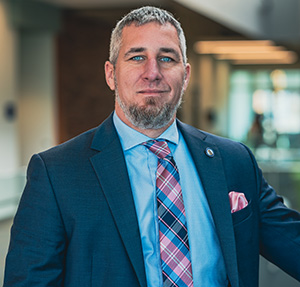
On February 1, 2024, Moravian University officially launched the School of Professional Studies and Innovation (SPSI)—one of our most significant programmatic initiatives since the introduction of rehabilitation sciences eight years ago.
The mission of SPSI is to optimize how we serve the post-traditional adult population, through graduate programs, certificates, stackable credentials, and degree completion. This mission underscores the founding values of Moravian University: recognized as one of the first schools in the country to offer education to females; we then opened our doors to welcome Native Americans and other disadvantaged groups, such as first-generation college students. Our history of creating access to relevant education for underserved populations is once again at the forefront, as we seek to support some of the 39 million Americans who have attended college but remain without a credential or degree.
SPSI was also launched to fulfill the needs of our communities, here in Bethlehem, in Lancaster, and across our region. With the furious pace of change in our digital economy, individuals and industry both need access to quality educational offerings and professional development. Employees need a relevant education, where they can learn something in class on Thursday and apply that concept in their team meeting Friday morning, allowing them to excel in their careers, earning promotions or making the leap to other industries. Industry partners need to invest in their workforce, attracting and retaining talent by offering educational benefits and partnering with SPSI to offer customized learning programs so their employees can gain the technical skills and leadership abilities needed to attain organizational success.
The student experience and academic pathways that SPSI will offer are designed for working adults who are juggling families and other real-world obligations. SPSI certificates and programs will allow adults reentering higher education opportunities to build on their progress over time and earn credits for the knowledge they already have, either through the transfer of prior college credits or through an assessment of their prior work experience. For our graduate students, SPSI will help highlight the value of our cohort model, which enables students to build connections and community as they tackle problem-based learning activities together.
The SPSI programs are shaped by industry: We work with business leaders to design courses that speak to the knowledge and skills they seek in employees, and classes are taught by industry experts that have academic credentials and experience in teaching adults.
To learn about the development and oversight of SPSI, Inside Moravian caught up with the school’s leaders, Deirdre Letson-Christofalo, associate provost and dean of SPSI, and Amir Tejani, chief innovation officer and managing director of SPSI.
What is your role with Moravian University’s School of Professional Studies and Innovation?

Deirdre Letson-Christofalo: I lead the development of SPSI academic programming: developing new programs for the adult population who are working and managing their busy lives. I will be responsible for establishing the critical relationships with business leaders and faculty who will help us design courses that are anchored in professional learning and will equip students with the skills necessary to stay on the cutting edge of emerging technologies.
Amir Tejani: I have the pleasure of working with colleagues to build the operational model for SPSI. With Deirdre at the helm for the academic program development, I will work closely with Peter Albrect, our executive director of enrollment, and Katie Desiderio, assistant vice president of corporate partnerships, to create frictionless and scalable pathways for students and partners to engage with SPSI.

A big part of that work will be developing our own technology stack. As a former Salesforce Higher Education advisory board member, I am looking forward to implementing and leveraging a new instance of Salesforce’s education cloud and squeezing all the goodness out of that platform, from CRM to advising to marketing analytics, all in an effort to meet students and partners where they are. Utilizing AI, real-time data, and a mobile-first approach will allow us to both customize and scale our efforts.
What excites you about leading this initiative?
D L-C: I have more than 19 years of experience working in professional studies for posttraditional students, working adults. Prior to coming to Moravian, I served most recently as vice president of professional and corporate education at New Jersey Institute of Technology; dean of the School of Business and the Center for Innovation and Professional Studies at Felician University; and vice president of adult, corporate, and online education as well as dean of the School of Professional Studies during my 13 years at Centenary University. When President Grigsby and I spoke about the opportunity to come to Moravian and build the School of Professional Studies and Innovation, I knew I could harness my prior experience and help Moravian meet the unique needs of an adult market and build something special in the process.
AT: I have been in higher education for 20 years, including stints at Lehigh as director of strategy and analytics in the Office of Economic Engagement and at Lafayette as special assistant to the president for strategic planning and implementation. What excites me about this is how rare an opportunity Moravian has to create something from the ground up, particularly as the business of higher education faces more scrutiny. We have a chance to build a school that is rooted in the mission of the institution but also serves as an innovative way to strengthen our entire campus community through new resource generation and opportunities to rethink how we can improve the educational experience for the adult learner population.
Where does SPSI fit in the overall governance of Moravian University?
D L-C: That is a great question. From an academic perspective, we needed the ability to be more nimble and align ourselves closer to the pace of industry partners. As such, as we develop new curriculum offerings and programs with industry experts and our professors of practice, I will bring those for review to the associate provosts for suggestions and recommendations. After that, the proposal will be reviewed by our provost, either approved or denied, and, if approved, submitted to the president and the board. From a curriculum perspective, our structure looks more like a law school or a medical school.
AT: From an operational perspective, I will report directly to the president and provide regular updates to an ad hoc committee of the board of trustees. We certainly recognize this governance and operational model is different, but our ability to move quickly—launching new programs, sunsetting those that don’t work, and reimagining how we can better serve our specific populations—means managing some challenges that are steeped in change management and therefore involve some level of discomfort.
What will differentiate SPSI from similar schools at other institutions?
D L-C: Our differentiator is our ability to create a program that really prepares people for the future of work in the digital economy, giving them the skillset that allows them to succeed. The curriculum is innovative, and students will gain skills in innovative thinking.
AT: For our students, it is the ability for us to deliver frictionless access to rigorous and relevant educational offerings they deserve. For our partners, it will be meeting their specific needs at a pace that other institutions cannot match. For Moravian, I am hopeful that our ability to scale our offerings and efficiency will mean we can support our overall efforts to offer a liberal arts education that prepares each individual for a reflective life, fulfilling careers, and transformative leadership in a world of change.